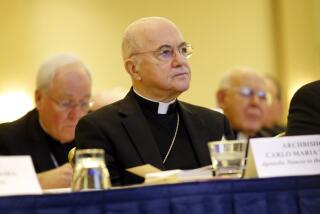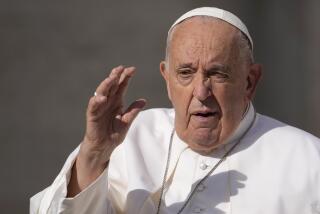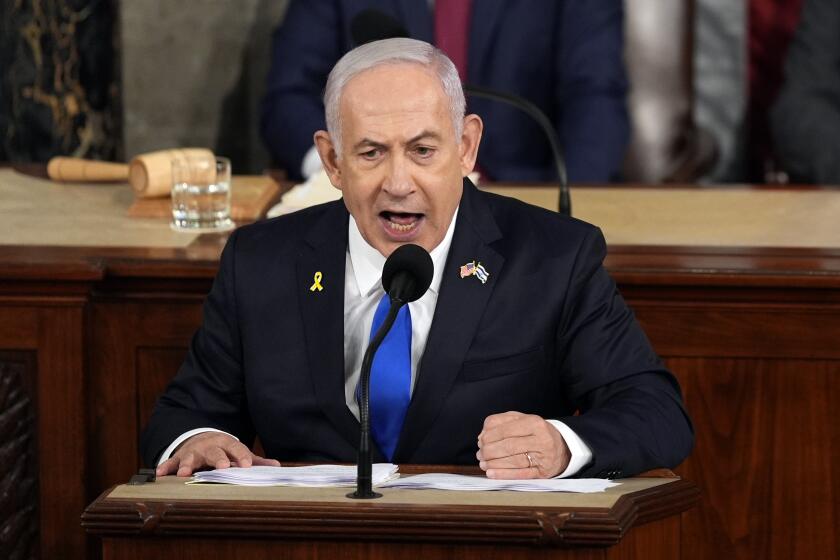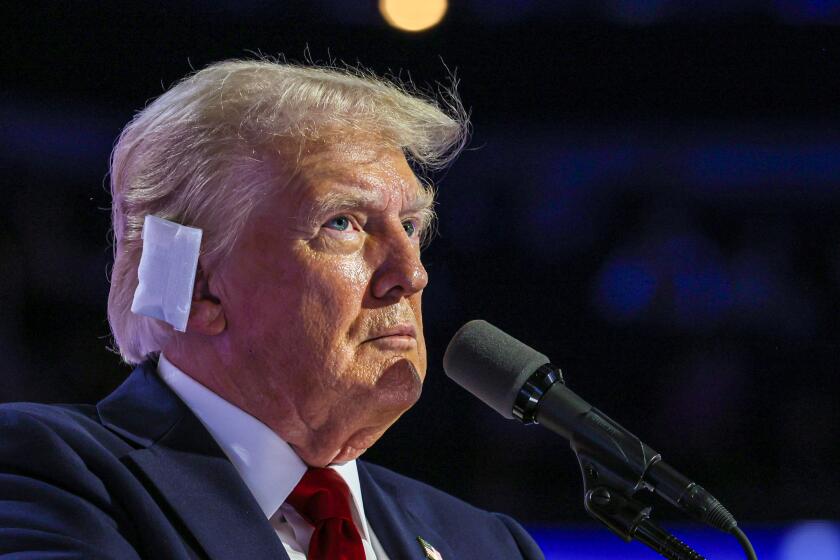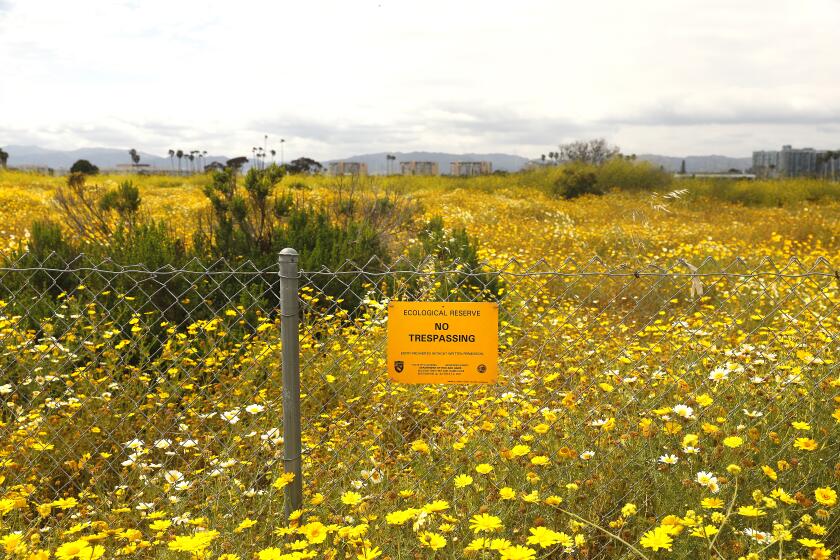Opinion: The religious culture war over gays is ecumenical
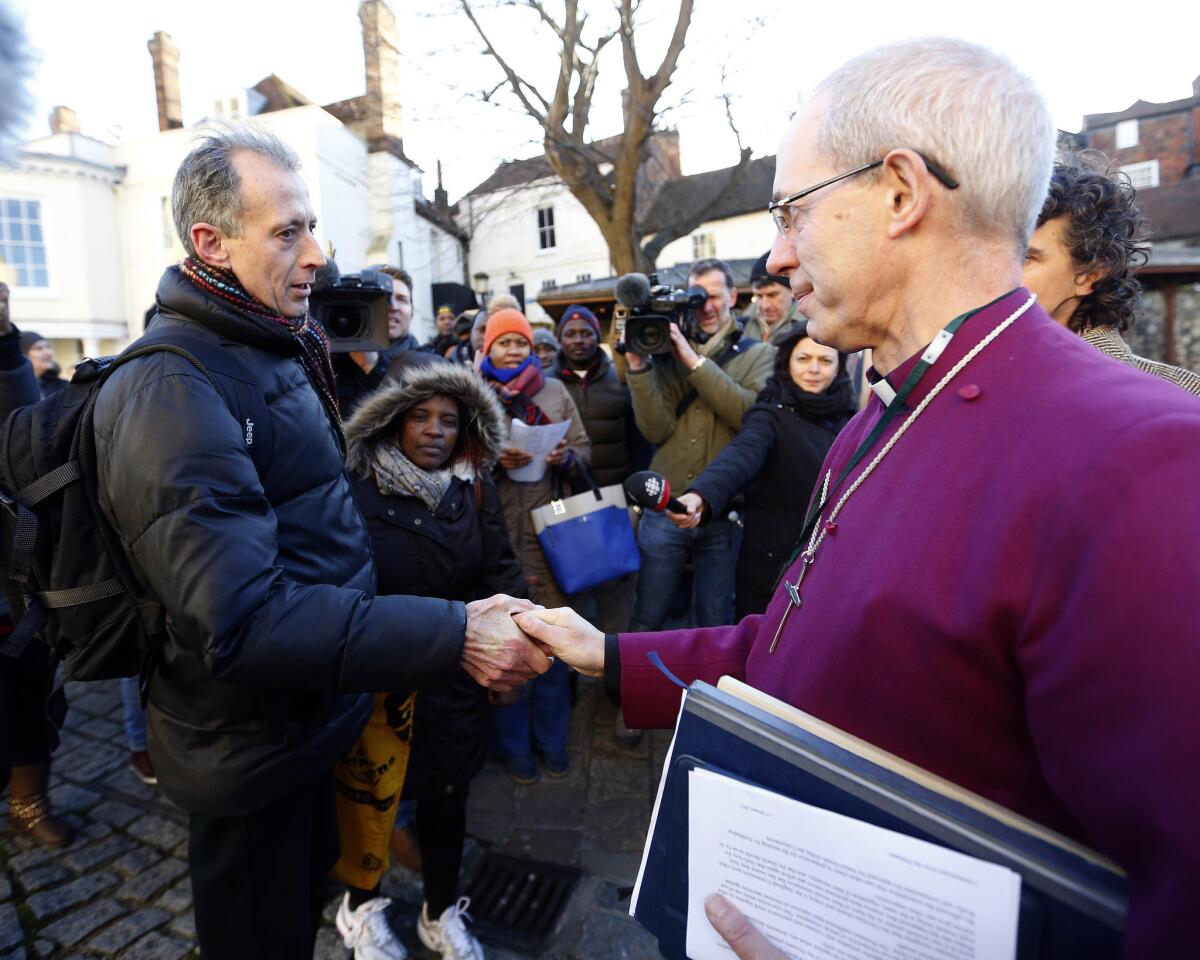
Archbishop of Canterbury Justin Welby, right, and human rights activist Peter Tatchell greet before a news conference in Canterbury, England, on Friday.
In 2004, I wrote a piece for Slate about efforts by Rowan Williams, then the archbishop of Canterbury, to soothe divisions within the worldwide Anglican Communion over homosexuality. I suggested that it was unlikely that Williams would be able to preserve unity between the liberal-minded U.S. Episcopal Church and more conservative Anglican churches elsewhere, particularly in Africa.
This week, the schism Williams tried to avert a decade ago seemed to come closer.
At a meeting in Canterbury, England, most of the primates (presiding bishops) of national churches agreed to suspend the Episcopal Church’s participation in various activities of the worldwide Anglican Communion for three years. They took that action in light of the American church’s approval of rites for marriages that can be used to unite same-sex couples.
Justin Welby, Williams’ successor as archbishop of Canterbury, tried to ease the sting by apologizing for the “hurt and pain” the church had caused gay people over the years. The presiding bishop of the U.S. church, Michael Curry, expressed disappointment with this week’s actions but said “it is not the end of the road . . . we have more work of love to do.”
It’s tempting to regard the fissures in the Anglican Communion as peculiar to that collection of churches, which trace their existence to the Church of England that separated from Roman Catholicism in the 16th century. Compared to the Roman Catholic Church, both the Anglican Communion and its constituent churches are highly decentralized. The archbishop of Canterbury is not an Anglican pope, even with respect to the Church of England.
Still, it would be a mistake to think that the split between Western liberals and conservatives from the so-called Global South is peculiar to Anglicans. Roman Catholic bishops in Africa and South America also tend to be much more traditionalist about sexuality than some, though not all, of their counterparts in the West.
That fact was evident during the recent Synods of Bishops on the family in Rome. And liberal Roman Catholic clergymen — like their Anglican counterparts — sometimes take an unsympathetic (some would say patronizing) view of their Third World counterparts’ conservatism.
Even if Pope Francis gives national bishops’ conferences greater authority, it’s unlikely that the Roman Catholic Church will ever be as decentralized as the Anglican Communion. Nevertheless, large numbers of Catholics — including, perhaps, some bishops — believe that the church’s condemnation of same-sex marriage is unjust.
For the foreseeable future, the Roman Catholic Church will continue to adhere to its teaching that marriage can exist only between a man and a woman. But cracks are likely to develop at the parish level.
Gay and lesbian Catholic couples may not receive a church wedding; but increasingly they may find that they are welcome at Sunday Mass and at the Communion rail. However unofficial, such accommodation will become common knowledge in the larger church. Catholic bishops in the Global South will surely object.
Today the Christian culture wars over marriage and sexuality are being waged in Canterbury; tomorrow, or the day after, the battleground might be Rome.
Follow Michael McGough on Twitter @MichaelMcGough3
More to Read
A cure for the common opinion
Get thought-provoking perspectives with our weekly newsletter.
You may occasionally receive promotional content from the Los Angeles Times.
